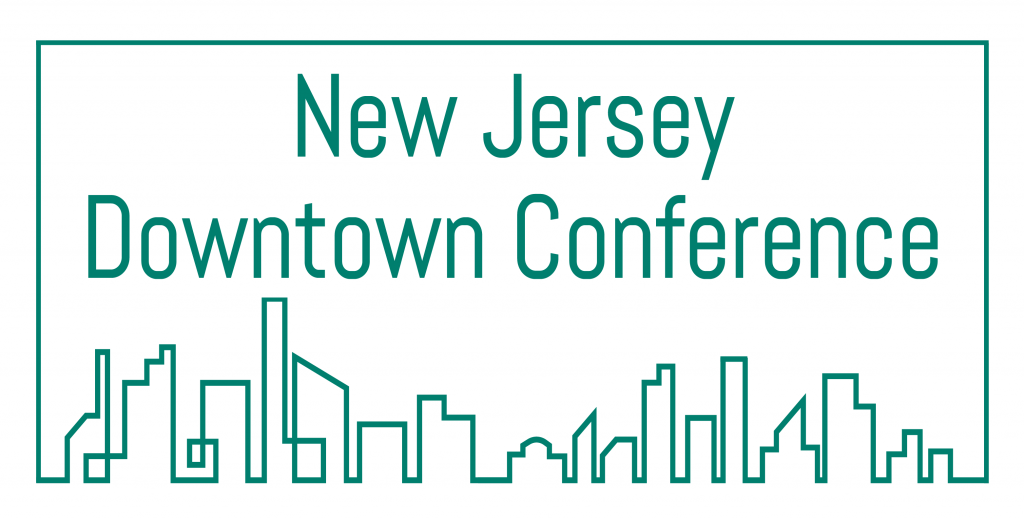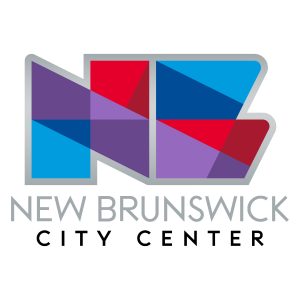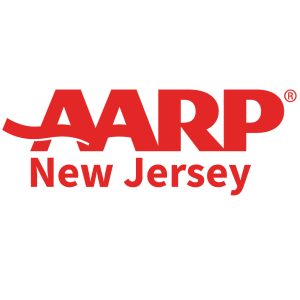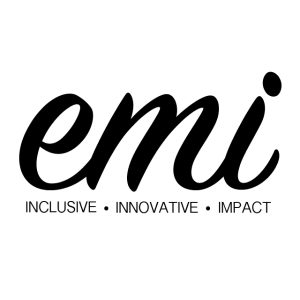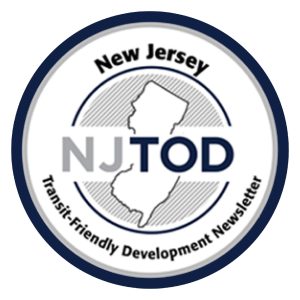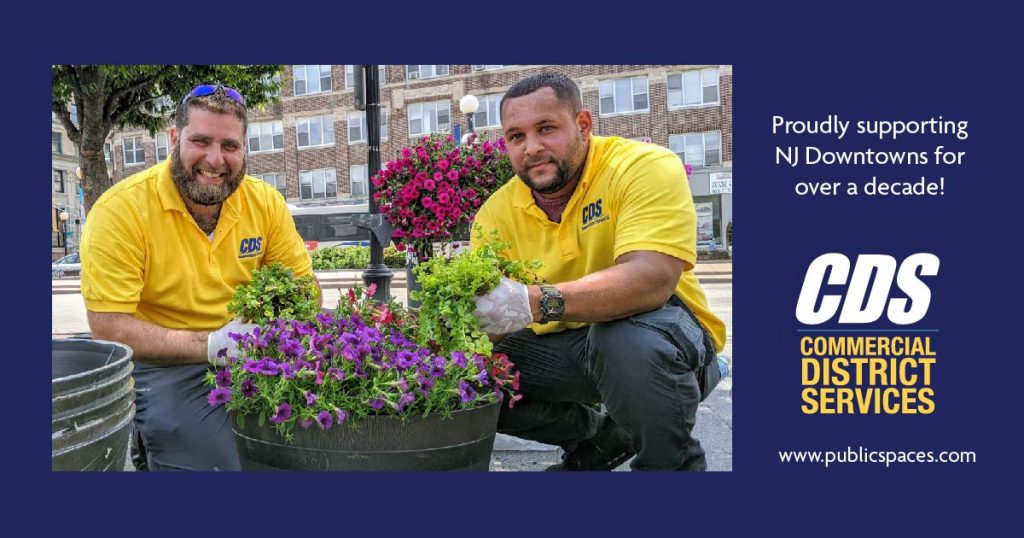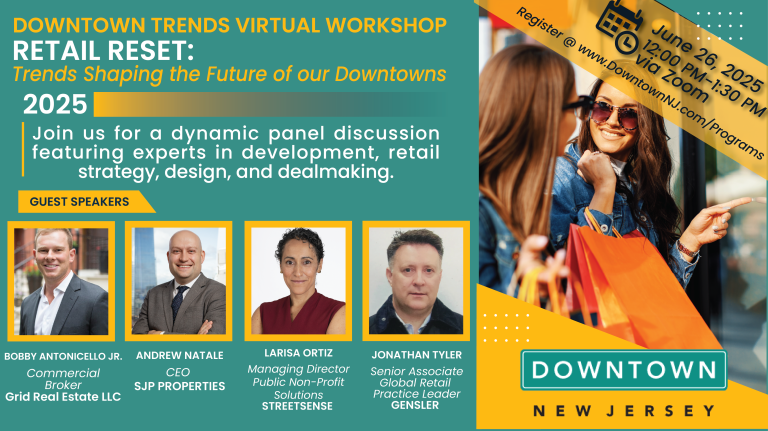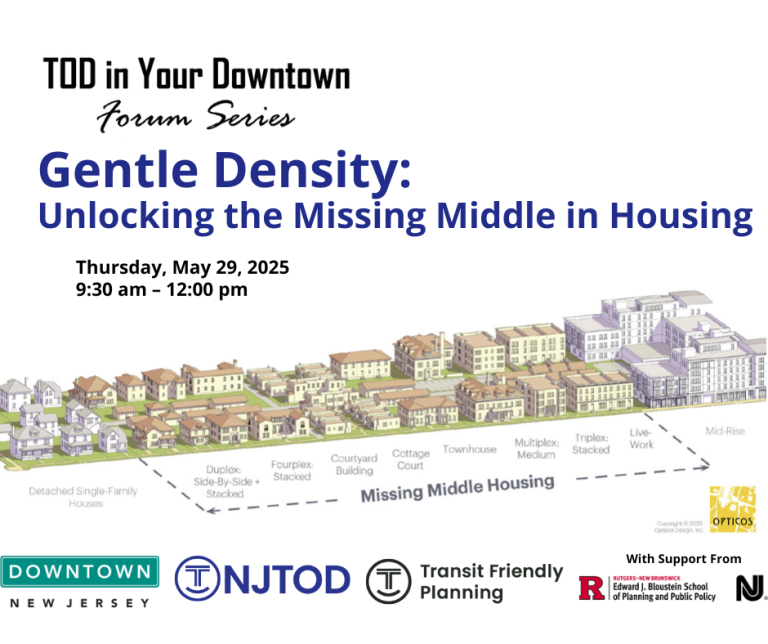Annual NJ Downtown Conference Focuses on Recovery
Pam Hersh and Rebecca Hersh
Write Way Media
January 29, 2021
Statewide non-profit organization hosted industry leaders in real estate and downtown management
Downtown New Jersey’s annual conference and New Jersey’s premiere economic development event, Downtown Recovery: Survive and Thrive in 2021, offered insights and lessons into downtown management best practices, as well as development, business, and retail market trends. The three-day online event and networking experience on January 19, January 21, and January 22 was an action-packed celebration of the value of downtowns as vehicles for providing enormous economic, cultural, and social benefits to communities throughout New Jersey. Throughout the three days and multiple panels and discussions, five key themes and actions came through loud and clear as critical for survival and adaptability in these trying times:
- Flexibility: From retail establishments to developers to local government officials to financing agents, the ability to think outside the box and nimbly pivot direction to adapt to new situations is critical.
- Leadership: Champions at the top, political leaders and BID managers, have to lead the way, coming up with ideas, putting forth survival strategies, and thinking outside the box. Leaders are more than managers — they have to be change makers.
- Money: Finding small businesses money through grants, loans, gifts, as well as relief from various fees can help retailers feel secure enough to take risks and pivot quickly.
- Collaboration: It takes a village, as they say, and nobody can weather this pandemic alone. Businesses, downtown managers, municipal governments, developers, artists, volunteers, and the community at large all need to work towards common goals.
- Staff: Having dedicated staff committed to the well being of the downtown is critical. These people act as orchestra conductors, see all the moving parts that make up a thriving downtown, and coordinating them all to achieve success.
In spite of the obvious once-in-a-generation challenges faced by our downtowns, panelists agreed that this year has provided all of us with invaluable experience and learned enormous lessons for how to handle future crises and were optimistic about the future of our downtowns for decades to come.
Day 1: Economic Recovery
The first day of the conference was dedicated to economic recovery, kicking off with a welcome from New Jersey Governor Phil Murphy, and following with a keynote from Strong Town’s Chuck Mahorn’s that highlighted the critical ways local leaders are on the front lines, grappling with the challenges of our times, and how our communities can be stabilized. The panelists in the afternoon discussed ways the pandemic informs new strategies to build stronger and more diverse local economies that are better equipped to manage the impacts of future disruptions. The afternoon also included virtual networking opportunities.
Welcome & Keynote
Our cities and towns are supposed to be places of stability and prosperity. But the way our places have grown in recent decades has made them economically fragile (and too often culturally fragile as well). With the COVID-19 crisis, we’re experiencing what happens when that fragility is tested. Local leaders are on the front lines, facing head-on the challenges of our time. They are forced to innovate with systems naturally resistant to change. And to be successful, they must lead despite the anxiety and distrust that permeates modern discourse.
Downtown New Jersey President Bob Zuckerman kicked off the conference noting that 2020 “was a very challenging year for all of us, but thankfully we had Downtown New Jersey to help us through the trying times.” He cited the organization’s 17 downtown management forums, advocacy for liquor license reform, work with legislators and state agencies, and hard work to keep New Jersey’s municipalities and downtowns informed, connected, and cared for.
New Jersey Governor Phil Murphy provided a welcome address and shared information about New Jersey’s initiatives to support small businesses and downtowns. “Public health equals economic health….Small businesses are the backbone of our communities. I have confidence that working together with the state, small businesses and the downtowns will bounce back stronger than ever before.” He cited how the NJ Economic Development Authority has helped 55,000 small businesses with life-saving grants and loans. He lauded the state’s new business incentive program, featuring sweeping social justice reforms, transparency, emphasis and support on innovation, and a Main Street finance program.
During his keynote address, Charles Marohn, Founder and President of Strong Towns, detailed the next steps local leaders must take to stabilize their communities and put them on a path to recovery. He advocated for local leaders to be bold, willing to create new rules, push outside the lines, recognize and seize on opportunities, and go beyond the role of managers who just play it safe. He noted that small businesses and downtowns are thirsty not just for money, but for thoughtful and creative strategies to put them on the path to recovery — such as rethinking zoning and other municipal rules that limit what and where businesses can do, addressing parking issues, enhancing the bicycle and pedestrian environment, and increasing sustainability initiatives. He warned against indiscriminate “grant shopping” — seeking money for projects that may be irrelevant to the needs of the community. “We must focus on the core needs of the community and then find the funding – not vice versa,” he concluded.
Panel Discussion: A Different Kind of Economic Recovery
2020 has been a year like no other. This panel provided high-level insight on the economic crisis and impacted sectors affected by this once-in-a-generation year. Panelists with expertise in economics and industry discussed how communities have bounced back after natural disasters and economic downturns in the past, presented future forecasts, and analyzed how the current pandemic informs new strategies to build stronger, more diverse local economies to manage the impact of future disruptions.
Mike Berne, President of MJB Consulting, noted that “the carnage has not been as cataclysmic as anticipated, and in many cases uneven, depending on the mix of retail and the location of the retail.” He pointed out that big cities are hurting more than smaller neighborhood centers and downtowns that are often sustained by a more affluent community. Between more stimulus money, increased vaccinations, lower rent, and pent-up demand, he expressed optimism for 2021.
The tremendous negative impact on individuals, however, cannot be forgotten, pointed out William Rodgers III PhD, an economist from the Heldrich Center for Workforce Development. “Thirty-eight percent of New Jersey households lack the resources to meet their very basic needs,” he said, adding that one of the best ways to help our downtowns is to help our struggling citizens get back on their feet financially. He also noted that we cannot overlook the scarring effects this pandemic has had on low-income workers, women, minorities, and children. Taking care of the needs of our people will trickle down to our downtowns.
Richard Kasmin, Chief Economist at NJEDA, discussed the federal government’s inadequacies in helping states and municipalities navigate the pandemic, but added that state and local efforts, often financed by NJEDA, that allowed and encouraged businesses to pivot and get creative with their business plans were the ones who have been able to weather the storm the best, noting that “NJEDA has been very important in financing grants and loans to enable some retail operations to pivot and become more sustainable.”
Providing new opportunities for existing minority-owned businesses as well as minority entrepreneurs to start up new businesses to meet the current needs of the community cannot be overlooked, said Lyneir Richardson, Executive Director, CUEED at Rutgers Business School. At a time when everyone is overwhelmed, funding applications should not be onerous and should be as simple and quick as possible for people trying to take advantage of funding opportunities.
Day 2: Placemaking
Placemaking was the focus of the conference’s second day, with discussions about ways downtowns can thrive by capitalizing on community assets, the role of the physical retail store in our new retail reality, and an awards ceremony recognizing excellent placemaking projects and initiatives intended to help small businesses survive and thrive during the pandemic.
Panel Discussion: Placemaking for the Win
This panel explored creative placemaking projects, “the intentional integration of arts, culture, and community-engaged design into community planning and development,” as defined by panel moderator Christine Newman, Director of Community Outreach and Volunteer Engagement at AARP New Jersey. Placemaking does not just happen, it is achieved through a multi-pronged approach to the planning, design and management of public spaces that is supported by substantial community collaboration. Panelists discussed different ways downtowns capitalize on their unique community assets to create intentional spaces that encourage visitors to immerse themselves in the downtown experience, thus creating a sense of place that attracts visitors, builds pride, and nurtures loyalty.
“It’s all in the process,” noted panelist Suzanne Ishee, the director of the New Jersey Institute of Technology Hub Hub for Creative Placemaking. “Develop a strong and diverse team with numerous leaders, including subject experts, neighborhood experts, and creative community members…identify existing community assets to build on, and then determine how to use them…Use community engagement to foster arts and culture and social equity to result in economic well being.”
Panelist Jaime Izurieta of Storefront Ninja and Storefront Mastery showcased a placemaking project from his hometown of Quito Brazil and highlighted the importance of thinking outside the box and not being constrained by rules or strict processes. “Be quirky, avoid formalities, ditch the book,” he said. “Emphasize small simple agreements and small actions. Find local champions, do projects cheaply, and make sure the project can be self-sustaining — find ways to monetize it or help businesses incorporate it into their business models.”
Tactical urbanism projects in Oyster Bay, Long Island, was the focus of Metuchen Downtown Association Isaac Kremer’s discussion. The Better Block tactical urbanism work he participated in on Long Island became the foundation for all of his organization’s future work as “an iterative approach where internal teams are rapidly mobilized to undertake interventions, then to test and refine these, became the project delivery system for all future projects over the next three years — to amazing effect.” Mr. Kremer discussed five keys to project success: 1) find your team and build relationships with people who make stuff, move stuff, etc.; 2) pick a date, make a poster, and tell people you are doing something; 3) think of every project as a pilot project to test ideas, gather data, and then refine; 4) iterate projects over time and start small and slowly scale up; 5) flex your budget in ways where small bets can lead to big wins. “Ride the wave and take risks,” Mr. Kremer concluded.
Placemaking Awards Ceremony
The NJ Downtown Conference also celebrated placemaking projects and initiatives intended to help New Jersey small businesses and downtowns survive and thrive during the shutdown and capacity limitations associated with the COVID-19 pandemic. The awards were presented at a virtual ceremony during the Downtown Conference. Joining Downtown New Jersey in recognizing excellence in placemaking was AARP New Jersey, who sponsored the event because these community efforts align with their own Livable Communities initiative. Read full announcement and and watch video>
Panel Discussion: Retail in the Changing Downtown Environment
As noted by moderator, Jonathan Tyler from Gensler, at the beginning of this session, “we stand at a point of substantial change in all of our lives.” This panel explored ways in which the pandemic has accelerated and recalibrated changes in the downtown retail, housing, and work environments that were already underway, and how to plan for these changes in ways that help our downtowns as we move forward.
The discussion was kicked off by Harriet Harris, Pratt’s Dean of Architecture, who pointed out that, contrary to some conventional wisdom, bricks and mortar retail shops might actually be in a strong position going forward as a way for people to connect with one another. She noted that while people have considerably less access to many cultural institutions and restaurants right now, “there are still a lot of possibilities for retail, to some extent, retain a foothold in our cities because of this need for people to have some therapeutic connectivity to others.” She added that in person retail will always have a place in our downtowns, as “not every analog retail experience has a digital echo. That tactility…the ability to browse…all of these things do not translate effectively. There will always be a need for that analog experience.”
Larisa Ortiz of StreetSense pivoted to discuss what the pandemic can teach us about practical and structural changes that need to be made to improve our downtown retail environments. “Never let a good crisis go to waste,” she began, adding that communities should use this moment to address many of the structural issues that are embedded into our codes, zoning, permits, and more — structural issues that have always made it challenging to run a successful business. Zoning and permitting assistance can include relaxing outdoor dining and merchandising rules, relaxation of use restrictions, allowing for takeout windows, and relaxing signage permits. She added that because the emergency measures taken thus far to help businesses in the pandemic — such as PPP loans — have been “place blind” and have not gone to addresses sectors or locations in the greatest need. Because of this, she concluded, further support for small businesses should focus on assistance with things like legal issues; lease negotiations; short term rental assistance and grants; technical assistance including operations and management assistance and safety guidance; promotions and marketing help; and help with promotion of local tourism to encourage more people to spend time in downtowns.
Panelists Lara Merrero of Gensler and Darius Sollohub of NJIT, discussed the ways in which people shop, work, and live is recalibrating. Ms. Merrero pointed out that “every single environment we’re designing, whether it’s a retail store or an office or a co-work space or a hotel, it’s about how we’re starting to look at this blend of workstyles and lifestyles co-existing in space.” She continued with an analysis of the different “ages” of consumer retail noting that the pandemic has launched us into the “Age of Belonging” where customers are driven by purpose and community and seek out partnership, co-creation, connection, and agency in their retail experiences.
Mr. Sollohub, who noted that “crises don’t create change — they accelerate change already underway,” discussed ways in which planners and decisionmakers need to pay close attention to the needs and desires of the generations that they want to be active on their streets. Pointing to a recent survey of what the millennial generation wanted to see in downtown Newark, he noted that focus group participants wanted to live in co-housing hotel-like buildings with extensive amenities and services, echoing the full-service residential hotels of the last century, like the Hotel Astor in New York City. In many buildings, these amenities could migrate to the street and take the place of fallow retail. He stressed the importance of paying close attention to what people want, not what decisionmakers think they want.
Virtual Tour of Newark & Happy Hour
If the pandemic has you missing exploring New Jersey’s towns and cities, you’re in luck — this session offered a historic and cultural walking tour of Newark led by Newark resident Emily Manz of EMI Strategy and Have You Met Newark Tours. Conference goers joined Emily as she led them around downtown Newark, stopping at spots including: Military Park, the oldest public space in the city, dating back to Newark’s incorporation in 1666; the Newark Museum of Art; the Teachers’ Village and Ironbound neighborhoods; and numerous local small businesses. The tour ended at All Points West Distillery — Newark’s only distillery — for a cocktail mixing tutorial led by owner Gil Spare, who also discussed how New Jersey’s restrictive alcohol laws have been detrimental to the success of his business, including, among other things, preventing him from serving any food, grocery items, or making any deliveries, which severely restricted his operations during the pandemic. The discussion about New Jersey’s onerous alcohol and liquor laws continued, including ideas for how to reform them to help small businesses and downtowns. To learn more about Downtown New Jersey’s advocacy for liquor license law reform, visit downtownnj.com/liquor-reform.
Day 3: Adapting to Change
Panel Discussion: Disrupted Development
The pandemic is the latest in a series of major disruptors affecting the development pipeline. In the last two decades, New Jersey has had to adapt to the impacts of terrorism, climate change, and economic uncertainty; the development community has had to adapt to shutdowns, slowdowns, supply and labor shortages, increased uncertainty, and safety concerns. Conflicting projections abound about how these shifts will end up shaping where people will live, how they will commute, and how and where they will work. This panel of experts brought together perspectives of a municipality, a residential developer, and office developer, and a redevelopment authority. All agreed that the pandemic has been wildly disruptive on multiple fronts; the discussion revolved around which disruptions will lead to permanent changes, which will be temporary, and which will reflect evolutionary (as opposed to revolutionary) changes.The panelists agreed that in dealing with disruptions caused by a pandemic (including increased working at home, labor shortages, supply chain delays, the changing retail landscape, and increased use of outdoor spaces), flexibility is crucial — flexible in financing strategies, flexible in design, flexible in site use, flexible in transportation options. If the various players — developers, funding entities, state and municipal governments — can cooperate, the post pandemic era may yield more exciting options than we ever visualized before the pandemic. “If we can’t be flexible and collaborative, then we have a lose-lose-lose situation,” noted Leslie Anderson, President and CEO of NJRA. Deb Tantleff, Principal of TANTUM Real Estate, added, “I have always found that flexibility is key, because when you start a project the world may be one way, when you finish it, the world may be a very different place.” Paul Silverman, Principal of SILVERMAN, agreed that flexibility is critical, as is planning ahead. “We’ve had to be much more proactive and plan ahead in ways we never thought about before. For example, in one building we’re working on, we’ve ordered appliances already, to have them at the end of the summer. Before, you’d order things like that maybe one month in advance. But now, we’re ordering six months in advance because of supply chain issues. Thoughtful advance planning is critical.”Everyone agreed that increased use of virtual communication is here to stay, even when the pandemic ends. Meghan Jack, Riverside Township Administrator, noted a benefit of this increased use of virtual communication is stronger community participation in municipal government meetings, including those of the planning boards and redevelopment committees. Zoom and other online meeting platforms have made greater civic participation possible, and panelists all hoped that this increased engagement will last past the pandemic and allow for businesses, governments, and organizations to feel less chained to exclusively in-person meetings and services.Panel Discussion: Mayors Round Table
The old trope about the power of NJ’s municipalities under home rule is only partially true. Yes, municipalities have significant land use powers, which can be a benefit and a detriment to downtown revitalization, depending on the dynamics of a particular town. On the other hand, state and federal policy initiatives also have a significant impact on a downtown’s ability to thrive. COVID relief, recreational marijuana, liquor licenses, slow streets, and redevelopment incentives are just a few policy initiatives that impact local land use. This panel of New Jersey mayors discussed possible local actions as well as their wishes for state and federal government actions to help revitalize downtowns.Although the four communities represented different sizes and locations in the state, their downtown survival strategies were similar. One key element of success — which was also echoed in many other panels at the conference — was flexibility. The panel’s mayors stressed the importance of making local regulations and physical environments as supportive of the local retail community as possible. This includes the elimination of all fees (or as many as possible); creating outdoor eating, shopping, and pedestrian spaces (traffic free plazas, parklets, etc.) and a willingness to give up parking spaces and parking revenue to do so.One municipality found success by hiring a person dedicated specifically to targeted business assistance by facilitating loans, grants, and special COVID-safe events. Point Pleasant Borough hired a Quality of Life Coordinator who was tasked with helping businesses find “loans, grants, and navigating unemployment,” said Mayor Paul Kanitra. “She was invaluable — she helped over 200 businesses who were too overwhelmed to deal with these details and research projects themselves.”South Orange Village President Sheena Collum agreed with this approach, adding “South Orange’s Special Improvement District was able to work with our small business community, helping them gather information on PPP loans, making sure they have what they need for outdoor dining, that they’re complying with CDC guidelines, that they have mask signage, etc. If your town has a Special Improvement District, definitely give a big smooch and hug to those executive directors.” She also stressed the importance of making things as smooth as possible for businesses. “Just make things easy. Those fees, those things that you used to generate money with, get rid of those. Immediately. Make things easy for your businesses right now. Now is the time for virtual hand-holding, and facilitating in any way possible for the health of our businesses.”Mayor Betsy Driver from Flemington Borough acknowledged that accommodating the needs of the downtown businesses has been labor intensive, but worthwhile not only for the immediate situation, but also for the future. “One thing we’ve learned from all this is how to strengthen the borough’s resiliency to protect from future disasters.” Mayor Sean Spiller from Montclair Township agreed, noting that Montclair’s ongoing work over the last few years has made it more resilient than many communities. “We already had the infrastructure for outdoor spaces and a pedestrian friendly environment. We really benefitted as a township that we have long been planning for outdoor space, massive sidewalks, and a pedestrian friendly environment for years.”The municipal leaders also agreed on the importance of hosting regularly scheduled virtual meetings of all businesses in the community with municipal and public safety representatives to discuss strategies.to keep the downtown alive — not just survival plans but future plans for improvement, including historic preservation, beautification, murals, plantings, and strategies to attract new business and allow for pop-up retail.Moderator Robert Goldsmith of Greenbaum Rowe Smith & Davis, LLP summed up the session by noting, “The common theme really seems to be flexibility and creativity in responding to extraordinary challenges.”Missed a session or the whole conference?
All of the videos from the conference are available to view on the conference website. Registered conference attendees can use their existing login credentials to watch.
Didn’t register for the conference? You can still register at a reduced rate to gain access to recordings of conference programs. More info>

